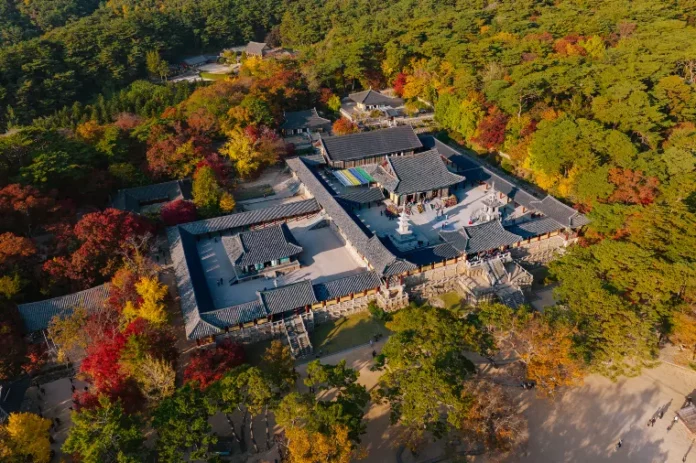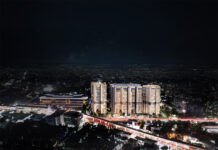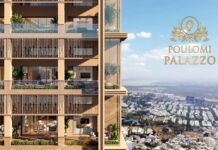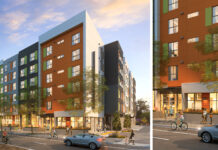Tucked away in the southern part of Gyeongsangbuk-do, Cheongdo is a county that harmonizes nature, tradition, and slow living in a way few places do. Known primarily for its vibrant persimmon harvests, scenic mountain landscapes, and the unique Cheongdo Bullfighting Festival, the area is a haven for those seeking a calm and introspective lifestyle. As more people look beyond metropolitan borders for community-focused and environmentally rooted spaces, 구미호오피 has slowly garnered attention for its understated appeal.
This article will explore the broader cultural, environmental, and lifestyle dimensions that shape Cheongdo, all of which directly influence the nature and rhythm of the local housing market. In doing so, we’ll understand why Cheongdo office has come to symbolize more than property—it represents a way of life built on simplicity, heritage, and natural beauty.
A County Built on History and Tradition
Cheongdo is a place where time seems to pause, giving residents and visitors alike a moment to breathe and reflect. The region’s historical significance is evidenced by sites like Unmunsa Temple, which has stood since the Silla Dynasty, and old hanok villages that preserve architectural traditions through centuries-old construction techniques. Here, the past is not merely remembered; it’s lived.
This deeply rooted heritage shapes the residential character of the area. Many homes are modeled after traditional Korean design philosophies, emphasizing harmony with the environment, open courtyards, and the warm simplicity of wooden beams and earthen walls. The charm of Cheongdo real estate lies in its authenticity—properties are not designed to impress with flash but to resonate with meaning.
The Role of Nature in Everyday Life
Surrounded by rolling hills, persimmon orchards, and crystal-clear streams, Cheongdo’s natural landscape is one of its most defining features. Residents wake up to the gentle sounds of rural life and go to sleep under skies unspoiled by city lights. Whether one lives closer to the valley plains or near the foot of the mountains, nature in Cheongdo is never out of reach.
Many homes in the area are integrated with the land itself—gardens for seasonal vegetables, paths leading into nearby forests, or terraces designed for open-air reflection. The Cheongdo real estate market reflects this closeness to nature. Newcomers often seek out properties with access to fresh air, views of farmland or water, and space for gardening or livestock. This pattern mirrors a broader trend across South Korea: a growing interest in sustainable, eco-conscious living in more rural locales.
Local Culture and Community Living
Cheongdo’s small communities are its soul. Rather than anonymous neighbors in high-rises, residents here often know each other by name. Village life operates through cooperation—sharing harvests, celebrating holidays together, and offering a helping hand during building or planting seasons.
This sense of deep-rooted connection also impacts property trends. Cheongdo real estate isn’t about isolation; it’s about integration. Many buyers are drawn to neighborhoods where social bonds are part of the local identity. Living in Cheongdo often means taking part in local festivals, volunteering in cooperative farms, or attending village meetings.
In particular, the Cheongdo Bullfighting Festival—unlike the Spanish variant, this one is animal vs. animal, with no human harm—draws significant participation and pride from locals. Homes near such community hubs often reflect not just geographic preference but a desire to live close to the cultural heart of the town.
Hanoks, Modern Cottages, and Earth-Friendly Living
One of the most intriguing aspects of Cheongdo real estate is the diversity in home styles. While hanoks remain a treasured feature in the region, they are often joined by modern eco-homes—simple, clean structures that fuse traditional aesthetics with modern functionality.
These newer builds often incorporate solar heating, composting systems, and natural insulation, aligning with the environmentally mindful values many residents share. The appeal of these homes is not extravagance but intention—each design element serves a purpose, often with sustainability and self-reliance in mind.
Meanwhile, renovation of old homes is common. Buyers frequently seek older properties in need of care, seeing them as blank slates for a more mindful way of living. Restorations usually aim to retain the original structure’s soul while integrating updates for comfort and efficiency. This process is often community-supported, with local artisans lending their skills.
Education and Quality of Life
While Cheongdo may not have large academic institutions, its educational philosophy is worth noting. Small class sizes, access to nature-based learning, and a strong emphasis on character development make it an appealing location for families looking for alternatives to urban schooling models.
Daily life in Cheongdo is shaped by quality, not quantity. Morning markets offer locally grown produce, wellness routines often involve walking along quiet trails, and shared meals remain a central part of social life. This environment offers a calm yet deeply connected lifestyle, making Cheongdo real estate particularly attractive for retirees, artists, and remote workers.
Increasingly, digital nomads and creative professionals are making their way into Korea’s countryside. They find in Cheongdo a setting conducive to focus and inspiration—a far cry from the distractions of fast-paced city life. This shift has led to a new wave of property interest, especially for homes that offer both solitude and connectivity.
Infrastructure and Connectivity
Despite its rural identity, Cheongdo is well-connected. The county is served by the Gyeongbu Line, linking it efficiently with cities like Daegu and Busan. This allows residents to enjoy the benefits of country life while still having access to urban services and networks.
Reliable roadways and internet infrastructure also contribute to the appeal of Cheongdo office. For remote professionals or weekend commuters, the region offers a viable hybrid lifestyle. Many properties are now being designed or retrofitted to serve dual functions—living spaces and creative work studios.
Local governments have shown interest in supporting this growth, encouraging sustainable development while ensuring the preservation of Cheongdo’s cultural and environmental integrity.
Cheongdo’s Future as a Lifestyle Destination
Though not widely known outside Korea, Cheongdo is quietly carving out a niche as a lifestyle destination. It’s not driven by trends or speculative development; rather, its growth is organic, shaped by values of community, sustainability, and cultural pride.
The transformation isn’t dramatic—but it is meaningful. As younger generations begin to see the value in rural living, new ideas and energy are flowing into the town. This includes projects like co-living spaces, artist residencies, and eco-villages—all of which contribute to the evolving narrative of click here.
While larger cities continue to grow vertically and densely, towns like Cheongdo offer a horizontal expansion—not just in terms of space, but in terms of life’s possibilities. Residents are not chasing time here; they are shaping it at their own pace.
Final Thoughts
Cheongdo office is more than a matter of square meters or location. It represents a conscious decision to live differently—to prioritize nature, connection, and heritage over hustle. Whether you’re considering a traditional hanok, an eco-conscious modern home, or a hybrid studio-residence in the heart of the countryside, Cheongdo offers options that are grounded, authentic, and filled with promise.
For those ready to embrace slow living without sacrificing connectivity or community, this tranquil region of South Korea might just be the perfect match. As interest in alternative lifestyles continues to rise, Cheongdo office stands poised—not as a booming market, but as a quietly compelling answer to the question: “How do we want to live?”






